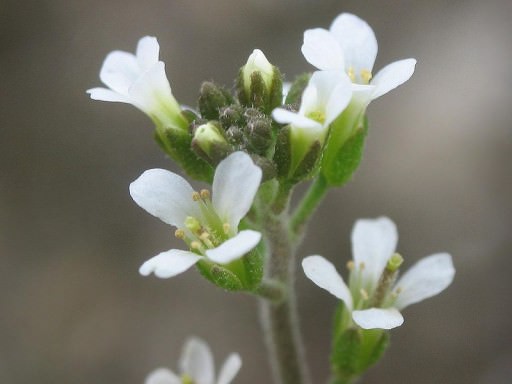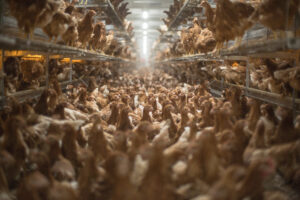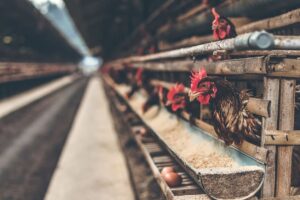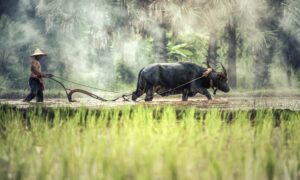Gene Machinery Helps Plants Handle CO2 Rise
The discovery by U.S. biologists of how plants respond to increasing levels of CO2 in the atmosphere could provide agricultural scientists with new tools to engineer crops that can deal with droughts and high temperatures.
By Tim Radford, Climate News NetworkThis piece first appeared at Climate News Network.
LONDON — Biologists in the US have identified the genetic machinery that tells a plant how to respond to more carbon dioxide caused by the burning of fossil fuels.
Four genes from three different gene families together control the density of stomata, or breathing pores, on the foliage of the healthy plant. As carbon dioxide levels in the atmosphere rise, plants respond and make fewer stomata.
That means they can detect a gradual change in the levels of a vital gas — a change from 280 parts per million 200 years ago to 400 parts per million now — and change their plumbing arrangements.
In theory, more carbon dioxide in the atmosphere should be better for plant fertility, and the reduction in stomata means that they should use water more economically. Water is a big expense for the growing plant.
Lose water
“For each carbon dioxide molecule that is incorporated into plants through photosynthesis, plants lose about 200 molecules of water through their stomata,” says Julian Schroeder, professor of biological sciences at the University of California San Diego, who led the team that reports in Nature journal.
“Because elevated CO2 reduces the stomatal density in leaves, this is at first sight beneficial for plants, as they would lose less water. However, the reduction in the number of stomatal pores decreases the ability of plants to cool their leaves during a heat wave via water evaporation. Less evaporation adds to heat stress in plants, which ultimately affects crop yield.”
Quite how crops will respond to a greenhouse gas world has been exercising field biologists, agronomists and government planners for decades.
Plants respond to warmth and to plentiful carbon dioxide. But, as researchers found in April this year, that may not make crops more nourishing. It would be possible to have vigorous growth but lower protein yields in, for example, fields of wheat.
There is a second unresolved question: a warmer world will mean more evaporation, more rainfall in some regions, and greater aridity in others — not helpful to productive farming.
A third challenge is that extremes of heat in the growing season can have a catastrophic effect on the harvest later in the year.
But the San Diego research may, in the end, help tomorrow’s farmers. The study shows that when their test species Arabidopsis thaliana — a little mustard plant also known as mouse-ear cress — senses a rise in atmospheric levels of CO2, it increases the levels of a peptide hormone that alters the genetic machinery in the skin of growing leaves, and blocks the formation of stomata.
The challenge was to identify all the proteins involved, and the genes that are at work.
Plant health
“This change causes leaf temperature to rise because of a decrease in the plant’s evapotranspirative cooling ability, while simultaneously increasing the transpiration efficiency of plants,” the report says. “These phenomena, combined with the increasing scarcity of fresh water for agriculture, are predicted to dramatically impact on plant health.”
The more researchers know about the physiological response of a growing thing, the more confidently they can predict how it will react to changing conditions, the better they will be able to advise farmers on the plants to sow, and the more likely it is that they will be able to breed new strains that can adapt to new conditions.
“At a time when the pressing issues of climate change and inherent agronomic consequences which are mediated by the continuing atmospheric rise of CO2 are palpable, these advances could become of interest to crop biologists and climate change modellers,” said molecular biologist Cawas Engineer, lead author of the paper.
Your support matters…Independent journalism is under threat and overshadowed by heavily funded mainstream media.
You can help level the playing field. Become a member.
Your tax-deductible contribution keeps us digging beneath the headlines to give you thought-provoking, investigative reporting and analysis that unearths what's really happening- without compromise.
Give today to support our courageous, independent journalists.






You need to be a supporter to comment.
There are currently no responses to this article.
Be the first to respond.